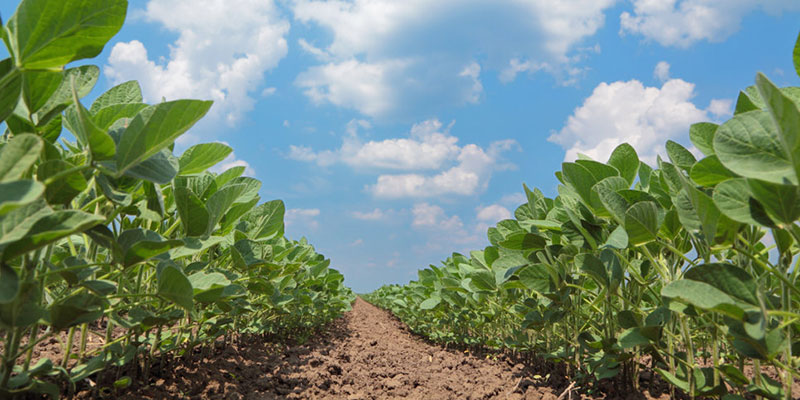A Dartmouth-led study shows that cutting groundwater pumping to sustainable levels could severely affect production of soybeans, corn, and winter wheat.
Strategies like managed aquifer recharge can help strike a balance between crop yields and groundwater preservation
In the United States, the production of three key crops relies heavily on irrigation, but in some regions, groundwater use for irrigation far outpaces natural aquifer recharge rates.
As aquifers are depleted, a number of ill effects follow. Ultimately, they may provide less water or even become unusable. Once ground subsides into empty aquifer formations, aquifers may never regain their water storage capacity.
Sustainable groundwater use allows aquifers to return to healthy levels, but a new study shows agricultural yields would take a severe hit under any scenario if groundwater use restrictions were initiated.
The study paints a picture of agriculture stuck in a dilemma of prosperity with an expiration date, versus sustainability with a steep drop in crop yields. Are there strategies that can prepare for or even avoid a shortfall in available groundwater for agriculture?
Irrigation for Agriculture
More than half — 52% — of irrigated farmland in the U.S. is dedicated to the production of corn, soybean, and winter wheat. Corn and soybean crops are two of the nation’s most important, and 17% of corn and 12% of soybeans crops are irrigated, often unsustainably. Yet a new Dartmouth-led study shows that cutting groundwater pumping to sustainable levels could hit production of the three crops hard.
The Dartmouth team used information on daily weather, soil properties, farm management, and crop varieties to create a crop model of irrigated agriculture between 2008 and 2012, and they checked the data against U.S. Department of Agriculture surveys for accuracy.
The team simulated crop production under four groundwater use restriction scenarios. In the most optimistic scenario, irrigated maize, soybean, and winter wheat harvests diminished by 20%, 6%, and 25%, respectively. In the most pessimistic scenario, however, they diminished by 45%, 37%, and 36%.
The study highlights how vulnerable irrigated agricultural production is to reduced groundwater pumping and foresees a future when even maintaining current levels of irrigated food production in the nation may be difficult.
Strategies for Groundwater Shortfalls
The study’s co-lead author, Jonathan Winter, explained that the predictions come with caveats that it can be difficult to predict precipitation, and that the projected agricultural losses could be reduced by updated irrigation technology, more water-efficient crops, and better water management.
Better water management includes the use of alternative water sources, such as water reuse and desalination, as well as managed aquifer recharge.
For example, many areas of the U.S. sit over large aquifers filled with water too salty to be used for irrigation, but recent advances in reverse osmosis desalination have significantly decreased price points for desalinated water. Modular desalination plants, such as Fluence’s NIROBOX™ plants, are ready for quick deployment, even in remote areas.
Facing a dramatic water shortfall, it no longer makes sense to use fresh water only once. In agricultural areas near cities, there may be significant volumes of municipal wastewater nearby that can be treated and safely reused for agricultural irrigation. Fluence’s Aspiral™ packaged plants offer exceptional energy efficiency and high-quality effluent that exceeds the strict California Title 22 and China Class 1A standards for agricultural reuse and aquifer recharge.
Fluence is a global water company with a catalog of equipment that can treat water or wastewater so it can safely be reused for agriculture. Contact our experts to make the best use of all your available water.

